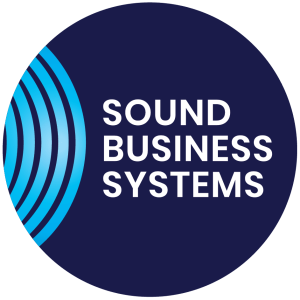
How to Dictate Better with Dragon in Mind

Share this article:
Dictation results in better structured and more creative writing of letters, essays etc. than typing out your own thoughts for most people. This applies whether you are dictating into a digital recorder for subsequent transcription or direct dictating into a speech recognition program like Dragon Legal NZ, Dragon Medical or Dragon Professional.
Keyboarding or self typing is not a time or cost effective approach for a lawyer or a doctor to create a document. No matter how fast you might think you are, even 100 wpm won’t cut it nowadays. With programs like Dragon, which can type at 150+ wpm it’s way more effective to use technology to help. In 10 year’s time the key board is likely to be obsolete anyway (author’s opinion) so at some stage you are going to have to change your ways. Why not start that approach now? The problem is you may never have been taught to formulate your thoughts on the fly and are way more comfortable on a keyboard.
Learning The Hard Way
If you are unfamiliar with dictating a good initial idea to type up letters out by hand as normal while you are still learning what to say, but that you should then screw up the typed draft before starting to dictate.
If you follow this approach you will slowly improve to the point where, after a few months, you don’t need to start with a keyboard approach at all. Maybe just jot down a few points to guide your thinking and then ready to start dictating. Before too long you will be able to dictate even complex letters without any typed-up notes and only a rough outline in your head, or at worst a few handwritten pointers.
How To Dictate – The Principles
The aim of dictation is, of course, to clearly and concisely convey verbally, the wording you want converted to written form. With conventional digital dictation your secretary or PA will give you tips on how to dictate in a way, which makes it easier for her to understand what you wanted typed. If you mumble, don’t speak clearly enough or fail to explaining what punctuation you want, the secretary will remind you and/or your dictated document will take way longer to produce. In this way mistakes are minimised and accuracy improves.
With Dragon, while you won’t get that type of personalised guidance, you do however receive immediate feedback because a poor dictation style results in a document with many mistakes requiring correction and the formatting will be rubbish. Because of the instant feedback received most people quickly learn a style of dictation that’s effective.
Whether dictating for a typist or direct into Dragon, the same principles apply and attention to the following points should improve your dictation skills and hence the accuracy of the transcribed result:
Engage brain before mouth
Knowing what you want to say before you start to speak is important. Correcting/changing the spoken word is easy in conversation but extremely difficult during dictation – better to get it right first time
Have a plan
If you are not experienced at dictating, learn the art. Start by typing or writing out what you want to say and then reading it aloud to the dictation program. Then try dictating from memory what you have written rather than actually reading aloud and see if that works better. As your technique improves so will the accuracy of transcription by the program. With practice you should progress from typing/writing out what you want to dictate to just jotting down an outline and ultimately to just making a written (or in time mental) note of points you want to cover before you start dictating.
Especially when using Dragon it definitely helps to think about what you are going to dictate before starting. Figure out what comes first, what points you need to make, what comes last.
Practice makes perfect
If you’re inexperienced try dictating into a recorder and then playing it back. Listen critically as if you had to write down what is said and see if you can improve clarity next time.
With Dragon you can simply use the “Play that back” command to have it play the audio of the most recently dictated phrase.
Don’t babble
Speaking slowly and clearly yields better results
Don’t become a metronome
Speaking in phrases, just as you would if giving a speech, is much more effective than s p e a k i n g s l o w l y a n d c l e a r l y b u t w i t h o u t a n y i n t o n a t i o n or p h r a s i n g.
Don’t speak too softly…be confident
Dragon can cope with soft voices and allows you to monitor your volume in the Dragon status window but don’t be too shy. Even in an open plan environment try and develop the confidence to speak up.
Dragon will record what you say
Unlike a legal secretary who will quite likely know what you meant to say know and make a correction Dragon will type up what you do say… so try to speak clearly and only say what you want written.
Avoid fillers
You know when we are not sure what to say, you know, we fill the space with, umm, fillers. Avoid them or, you know, the program will, err, type them.
Wait Quietly
If you are not sure what to say next then simply stop while you think before starting again – Dragon will wait for you. That sure beats having to go back and edit out all the “you know” type filler words later.
If writer’s block strikes dictate an instruction to yourself
Something like as “finish this paragraph later” – and proceed with the parts you can get done rather than sitting worrying about what to say next. You can always fix the order with judicious cutting and pasting during editing
Don’t use truncated speech
Written language differs from common speech and if “ya wanna look OK written” dictate that “you want your wording to look appropriate when written”
Remember to punctuate as you dictate
When you want a comma or a period inserted or a new paragraph started, you can simply dictate that by voice and Dragon will understand.
Learn how to make a correction
Either just dictate a note to yourself about the mistake and correct it later when editing, or correct as you go. With Dragon the most critical thing to learn is how to correct a mistake. Do it right and the program will progressively learn. Do it wrong and it will do just the opposite. This will all be taught you when we train you, so while it can be an issue for a self-taught user, it’s not something to worry about when you use SBS.
When the dictation is finished the job is not yet done
Proofreading the written word to correct mistakes (whether your mistake or the program’s mistake doesn’t matter) is vital. If, like most people, you tend to read what you meant to say rather than what is actually written down when you proof read, try reading the written word aloud. That way is easier to notice problems with the written word. Another trick is to read what is written to see if it conveys the right message – not to look for mistakes.
If more convenient you can use Dragon’s “read document” or “read selection” to get the program to read aloud to you too.
So…in Summary
Dictation is an art but once learned it will save time and allow you to order your thoughts so as to create a coherent narrative requiring minimal editing. For most people, dictation results in better structured and more creative writing of letters, essays etc. than typing out your own thoughts. Somehow the mechanics of recording your thoughts onto paper or a screen gets in the way of interesting and creative writing for most people.
Addendum: It’s also no bad thing for a lawyer to be able to formulate thoughts on the fly or in their head so it’s worth making the call to abandon keyboarding in the interests of your future success.
Thanks to Colin Oberin for this article.
http://atmac.org/dictating-well-principles-from-a-master
Find out how speech-to-text technology and digital dictation will help you work smarter.
Categories
- Dictation Equipment (2)
- Digital Dictation (7)
- Dragon Naturally Speaking (15)
- Dragon Speech Recognition (32)
- Health Tech (1)
- How To? (2)
- Lecture/Conference Recorders (1)
- News (7)
- Opinion (10)
- Philips SpeechLive (6)
- Software Updates (14)
- Uncategorized (6)
- Winscribe Digital Dictation (5)
Follow us:
Most Popular



Winscribe Dictation is here to stay!

What is conversational AI and how does it support speech recognition?
Also interesting for you:
.
Categories
Contact Us
- Phone
-
3/62 Paul Matthews Road,
Rosedale, Auckland 0632 -
PO Box 303161,
North Harbour, Auckland 0751
- Hours of Operation
- Monday - Friday, 8.30am - 5pm
Contact Us
- Phone
- Hours of Operation
- Monday - Friday, 8.30am - 5pm AEST



